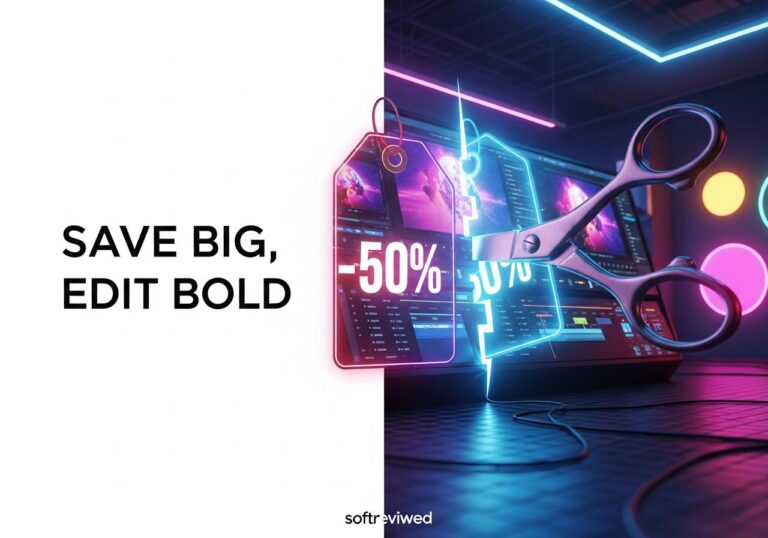 Android XR: Is Google’s Virtual Reality Vision Finally Coming into Focus?
Android XR: Is Google’s Virtual Reality Vision Finally Coming into Focus?
Google is putting its weight behind the future of extended reality with a dedicated Android XR platform. Here’s a look at the key elements bringing their vision into view.
AI-Driven Features
Gemini powers real-time translation, navigation, and immersive experiences across glasses/headsets.
Collaborative Hardware Partnerships
Google teams with Samsung (headsets), Gentle Monster, Warby Parker (AR glasses), and Kering Eyewear.
Multi-Device Ecosystem
Supports both smart glasses (stylish, wearable) and mixed-reality headsets for diverse use cases.
2025 Launch Window
Android XR-powered devices first arrive late 2025 through partner brands.
Privacy-Centric Design
Prototypes tested for optimal user and bystander privacy, addressing a key concern in XR.
Cross-Sector Platform
Unified software framework enabling diverse hardware implementations across different industries.
Android XR: Is Google’s Virtual Reality Vision Finally Coming into Focus?
Google’s been dabbling in VR and AR for years, but with Android XR, the tech giant is making a serious play to unify the extended reality (XR) space. Teaming up with Samsung and Qualcomm, Google aims to bring the power of Android – and its AI smarts – to a new generation of headsets and smart glasses. Is this the future of VR and AR? Let’s explore what Android XR is, what it promises, and what challenges it might face.
From Google Glass to Gemini: A Journey to Android XR
Google’s history with head-worn displays is a mixed bag 🎒. Remember Google Glass? It was ahead of its time, but the timing wasn’t quite right, as Sergey Brin himself admitted. Then came Cardboard and Daydream, simpler VR experiences that eventually faded away.
But Google didn’t give up. They acquired VR companies and experimented with new concepts. Project Iris, an earlier AR headset project, was ultimately shelved after the arrival of Apple’s Vision Pro. But from its ashes rose Android XR, a new platform aiming to learn from past mistakes and leverage the latest advancements in AI.
What Exactly Is Android XR?
Android XR is an extended reality (XR) operating system developed by Google, built upon the foundation of Android. Think of it as Android, but specifically designed for headsets and smart glasses. It’s meant to be a unified platform for developers, allowing them to create experiences that work across a wide range of devices.
According to Google, Android XR combines years of investment in AI, AR, and VR to bring helpful experiences to headsets and glasses. It aims to blend the digital and physical worlds, offering users new ways to watch, work, explore, and connect. A key element of Android XR is its tight integration with Gemini, Google’s AI assistant.
Android XR: A Platform Poised to Blend Tech with Everyday Life

Android XR isn’t just about gaming 🕹️ and entertainment. Google envisions it as a tool for productivity, communication, and even exploration. Here’s a glimpse of what it offers:
- Access to Android Apps: Run your favorite Android apps and games in XR.
- AI-Powered Assistance: Gemini can understand your context and intent, providing hands-free help.
- Immersive Experiences: Enjoy movies, games, and other content on an infinite screen.
- Seamless Switching: Effortlessly transition between virtual and real-world environments.
Project Moohan and Beyond: The Hardware Landscape
The first device slated to run Android XR is Samsung’s Project Moohan, an immersive XR headset. Details are still emerging, but it’s expected to be a high-end device similar to Apple’s Vision Pro, but potentially lighter and easier to wear.
Google is also working on its own smart glasses, code-named Project Astra, powered by Android XR. These glasses are designed for all-day wear and offer features like a camera, microphones, speakers, and an optional in-lens display. Google is partnering with eyewear brands like Gentle Monster and Warby Parker to create stylish glasses.
The Power of Gemini: An AI Assistant for Your Eyes
One of the most compelling aspects of Android XR is its integration with Gemini. Imagine having an AI assistant that can see what you see, hear what you hear, and provide contextually relevant information and assistance.
With Gemini on Android XR, you can:
- Ask questions about your surroundings.
- Translate languages in real-time.
- Get directions and explore new places.
- Control your device with your voice.
- Have conversations about what you’re seeing.
Is Android XR the Antidote to VR’s Accessibility Problem?
Android XR aims to solve a major problem in the VR/AR space: fragmentation. By creating a unified platform, Google hopes to attract more developers and device makers, leading to a wider range of devices and experiences for consumers.
Here’s how Android XR aims to democratize the XR experience:
✅ Unified Platform: Provides a standard for developers, reducing the need to create separate versions for different headsets.
✅ Broader Device Availability: Supports a wide range of devices from immersive headsets to lightweight glasses.
✅ Lower Barrier to Entry: Leveraging the Android ecosystem and familiar development tools can lower development costs.
Challenges and Considerations
While Android XR holds immense promise, it’s not without its challenges 🚧.
- Competition: The XR market is becoming increasingly crowded, with players like Meta, Apple, and others vying for dominance.
- Privacy Concerns: The always-on nature of smart glasses raises privacy concerns. Google will need to address these concerns transparently.
- Adoption by Developers: Convincing developers to embrace Android XR will be crucial for its success.
Expert Opinions
“Android XR is the first Android platform built in the Gemini era and it supports a broad spectrum of devices for different use cases from headsets to glasses, and everything in between,” said Shahram Izadi, Vice President, Android XR at Google I/O 2025.
The Verge’s Victoria Song, after getting a hands-on with Samsung’s Project Moohan and Android XR prototype smart glasses, noted that “Android XR is a mixed reality OS designed for headsets and smart glasses, and it seems like Google is directly taking a page out of Meta’s smart glasses playbook.” She also emphasized Google’s focus on style, partnering with brands like Gentle Monster and Warby Parker.
The Future of Android XR: A Glimpse into Tomorrow
What does the future hold for Android XR? Here’s what we can expect:
- More Devices: Expect a wider range of Android XR devices from different manufacturers.
- Improved AI Integration: Gemini will become even more intelligent and capable.
- New Applications: Android XR will find its way into new industries and use cases.
Google and Samsung are partnering to take Android XR beyond headsets and into the realm of stylish glasses. Developers will be able to start building for this platform later this year, hinting at a potential explosion of new apps and experiences tailored for smart glasses.
A New Reality Beckons
Android XR represents Google’s most ambitious attempt yet to conquer the XR space. By combining the power of Android with the intelligence of Gemini, Google is creating a platform that could transform how we interact with technology and the world around us. Whether it succeeds remains to be seen, but one thing is clear: the future of XR is looking increasingly Android-flavored. 🚀
For developers eager to get started, check out the Android Developers Blog.







